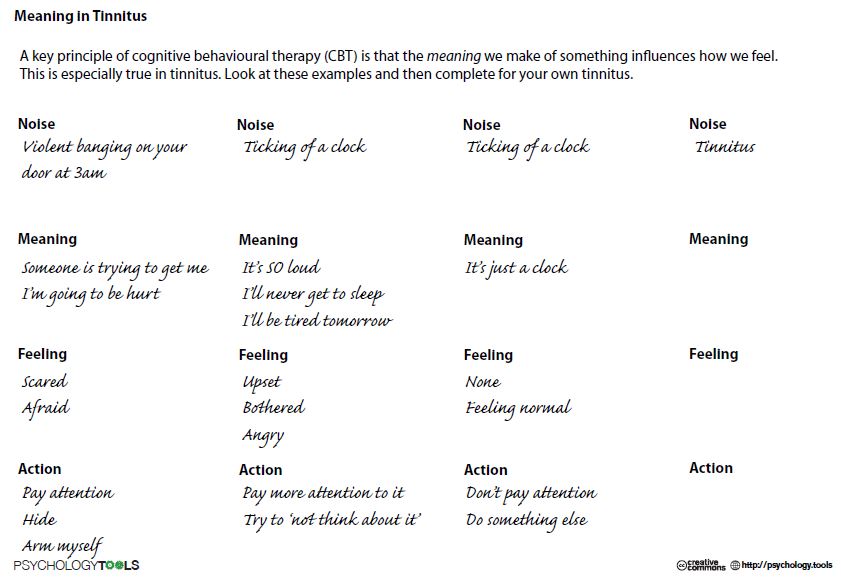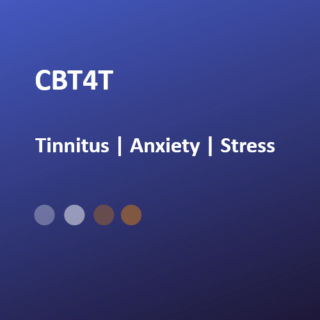Bespoke CBT tools are provided by Debbie Featherstone as you progress through the CBT4T process. This CBT Tools section gives examples (links above).
CBT (Cognitive Behaviour Therapy) in essence, teaches that our actions (behaviour) come about through our mindset - how we "think". The content of our thoughts that come from our beliefs lead us to "feel emotions".
Tinnitus and Belief
Where Do Beliefs Come From?
Beliefs come from "meaning" we attach to any given thing. For example, being distressed because of tinnitus, somewhere inside you there is a sense of "threat" to your wellbeing. Often "threats" are not so much real as they are predictions. 'Predicting the future' is an extremely common "Cognitive Distortion" most of us do when we're not comfortable about something. It is but one of a number of Cognitive Distortions (others include All or Nothing Thinking, Catastrophising, Maximising the Negative, Minimising the Positive, Self Blaming, Other Blaming etc etc).
Tinnitus and Meaning
Here is a tool that may help you understand more easily: Meaning in Tinnitus (Psychology Tools)

Can you see which of the 3 completed columns are rational and which are irrational?
Column 1 - (Event) Being awoken in the middle of the night to a loud banging and feeling scared/afraid - rational or irrational? It is an understandable and RATIONAL response
Column 2 - (Event) Hearing a ticking of a clock and feeling upset/bothered/angry - rational or irrational? Most people would consider this an IRRATIONAL response
Column 3 - (Event) Hearing a ticking of a clock and feeling normal/nothing - rational or irrational? Most people would consider this a RATIONAL response
Column 4 - (Event) Have a go at filling in each of the entries about something you experience about your tinnitus. Decide for yourself whether you consider it RATIONAL or IRRATIONAL?
What makes each or any of these RATIONAL or IRRATIONAL?
You have no doubt spotted the answer - it is the MEANING attached to the event
NEXT: Two Arrows
